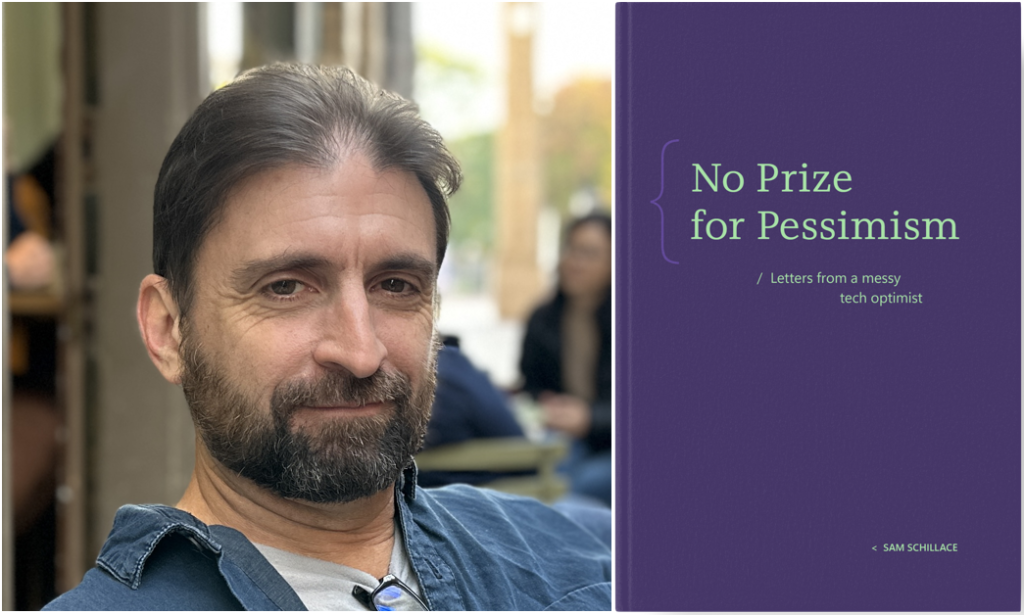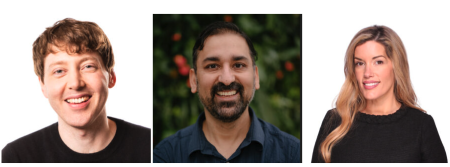In a recent episode of the GeekWire Podcast, Sam Schillace, the Deputy CTO at Microsoft and author of “No Prize for Pessimism,” discusses the importance of optimism in fostering innovation, particularly within the realm of emerging technologies such as artificial intelligence. Schillace’s career includes founding the startup responsible for creating Writely, which was later acquired by Google, leading to the development of Google Docs. Since joining Microsoft in September 2021, he has been tasked with improving cross-departmental infrastructure, enhancing consumer products, and creating new technology categories. His approach combines deep industry experience with a focus on experimentation and creativity, characterizing his role as that of a “mad scientist.”
Schillace emphasizes that an optimistic mindset is essential for driving innovation, especially in areas laden with complexity and uncertainty like AI. He argues that revolutionary inventions often stem from tackling challenging problems with a curious, exploratory “what if” mentality, rather than falling into a pessimistic “why not” outlook. This shift is crucial for fostering an environment conducive to significant breakthroughs. He also notes a prevailing pessimism among younger generations, attributed to the curated nature of online experiences and societal pressures. Schillace’s book aims to counteract this trend, encouraging budding entrepreneurs to embrace experimentation as a path to success rather than be deterred by fear of failure.
In the context of AI’s rapid evolution, Schillace underscores the need for a shift toward an “AI-native” mindset among developers. He draws parallels between the ongoing transformation driven by generative AI and the earlier shift from desktop software to cloud computing. Both transitions require rethinking how applications are developed and how problems are addressed. In the next couple of years, the greatest opportunities will arise by leveraging AI capabilities within specific domains rather than merely focusing on the technology itself. Developers are encouraged to analyze existing problems through the lens of AI’s potential, devising innovative solutions that integrate with its capabilities.
Schillace articulates that success in the burgeoning AI landscape lies in understanding the delicate balance between the structured nature of traditional coding and the unpredictable characteristics of AI, which he describes as a “tension between chaos and order.” This interplay is increasingly vital as technology continues to disrupt traditional problem-solving paradigms. He asserts that recognizing this tension can lead to more creative and effective solutions, especially in environments where rapid technological advancements are the norm. As organizations strive to adapt and innovate, embracing this philosophy can yield unprecedented outcomes.
Furthermore, Schillace’s involvement with Microsoft extends to providing insights to the leadership team overseeing Windows and Office, drawing from his extensive background in product development. His holistic perspective on technology contributes to the determination of strategic directions for Microsoft’s product ecosystem, ensuring that the company’s offerings remain competitive and relevant in a rapidly evolving marketplace. Schillace’s approach not only impacts Microsoft’s internal directives but also serves as a guide for other organizations navigating similar technological shifts.
In conclusion, Schillace’s insights on optimism, innovation, and the evolving landscape of AI offer a roadmap for individuals and organizations seeking to thrive amid constant change. By promoting a mindset that values experimentation and challenges conventional thinking, he advocates for a more resilient and agile approach to technology and problem-solving. With “No Prize for Pessimism,” Schillace aims to inspire a new generation of innovators ready to harness the potential of AI and other emerging technologies.














